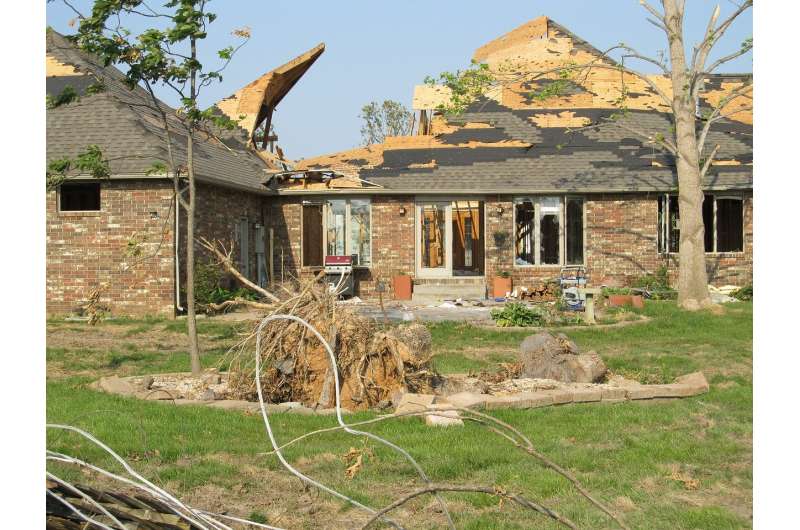Personal growth often coexists with post-traumatic stress following natural disasters

The 2011 tornado in Joplin, Missouri, was one of the most destructive in U.S. history—killing 161 people, injuring 1,150 and destroying approximately one-third of the city's homes. Individuals who experience such disasters can exhibit a range of mental health issues, including post-traumatic stress. Now, researchers from the Disaster and Community Crisis Center at the University of Missouri have found that survivors of natural disasters have the potential to experience positive changes or growth in addition to the stress they experience. Researchers say this finding can help those working in communities after a disaster.
"When disasters occur, mental health professionals—community organizers, social workers, case managers and counselors—often work in partnership with local, state and federal organizations to respond," said Jennifer First, doctoral candidate in the MU School of Social Work and disaster mental health program manager with the Disaster and Community Crisis Center. "It is important that these professionals understand that the negative consequences of trauma can coexist with positive perceptions of growth. In fact, post-traumatic stress may drive a search for meaning following a disaster."
Prior research has indicated that several factors, including appreciation of life, relating to others, personal strength, new possibilities and spiritual change, contribute to post-traumatic growth. In order to understand the relationship between post-traumatic stress, personal growth, and communication with friends and family, MU researchers working with a Joplin community mental health partner examined these factors in a sample of 438 adult survivors of the Joplin tornado two and a half years after the event. Participants were asked how they were impacted by the tornado, about post-traumatic stress symptoms, and if they talked about the tornado with people they knew.
"We found that more communication between people who experienced the tornado and their families, friends and neighbors was related to more post-traumatic growth among survivors," said Vicky Mieseler, chief administrative officer with the Ozark Center in Joplin, who led the community mental health response to the tornado and helped conduct this study. "A takeaway is that mental health providers can help foster growth by promoting connections and communication among survivors in long-term, post-disaster communities."
"Post-traumatic growth 2.5 years after the 2011 Joplin, Missouri tornado," was published in the Journal of Family Social Work.

















